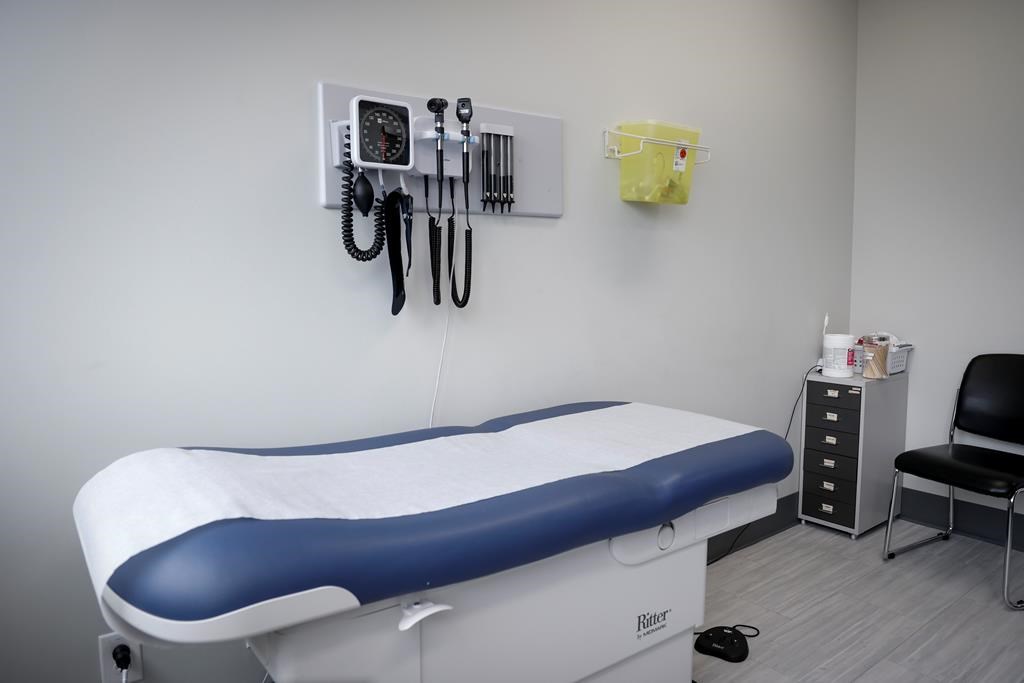
A healthcare clinic serving refugees in Calgary for nearly 20 years faces critical funding challenges and is at risk of imminent closure.
The Calgary Refugee Health Clinic explains on a crowdfunding page the loss of about $1.6 million annually in funding that will happen in April 2025 has led to the current crisis.
The Mosaic Primary Care Network (PCN) pulled the plug after covering operational funding for the program since 2013.
Without alternative funding, the northeast clinic located in the Marlborough Mall professional building is at risk of shutting its doors.
Rachel Talavlikar, the medical director of the Calgary Refugee Health Society, tells 660 NewsRadio the Mosaic PCN was directed by Alberta Health to no longer fund the clinic, despite the clinic’s ongoing need for support.
“We are a casualty of the uncertainty and landscape where there is a lot of shifting in terms of who is responsible for what. So everybody is turning around and saying, ‘Sorry, you’re not our problem,’ when actually, our patients are right here in front of us, looking for care,” she said.
Talavlikar says the clinic has approached the Alberta government about funding, noting there are vulnerable population grants through federal health transfers.
But she says they were denied the chance to apply and were denied access to those public sources following the implementation of the Modernizing Alberta’s Primary Health Care System (MAPS) initiative.
“So, as a result of that, the decision was made by the board of the [Mosaic] PCN that they would no longer be able to operate the clinic,” Talavlikar said.
She says the shifting landscape in primary care in Alberta has left some PCNs uncertain about their funding direction.
The province started the MAPS initiative in 2022 to help “strengthen primary health care in Alberta.”
The final report released in October 2023 included a recommendation for an agency dedicated to primary care overseen by the Minister of Health and separate from Alberta Health.
It also includes recommendations around funding, namely how PCNs receive and distribute funding.
The Calgary Refugee Health Clinic has been a place for refugees arriving in Canada to receive comprehensive healthcare. Newcomers can also receive help with resettlement from the clinic.
The 27-person healthcare team includes family physicians, registered nurses, transition coordinators, psychologists, social workers, clinical coordinators, infectious disease, hepatology, and psychiatry.
Talavlikar says patients come across healthcare during challenging transitions. If they aren’t part of the resettlement system, their health may decline, leading to crises where they seek care in emergency rooms or walk-in clinics that may not meet their needs.
It was part of why the clinic was born. Sudanese children war soldiers arrived at the emergency room one day, and she says it was a moment to see “we need to do better” for the refugee population.
With an influx of patients, Talavlikar says the human cost to the closure is “very real for our patients.”
“As well as for our resettlement partners, agencies, and for all Canadians, because these refugees go on to become very contributing members of our society,” she said.
“If we can’t set them up and help them during that initial resettlement phase, the costs will be long-term.”
The Calgary Refugee Health Clinic has over 2,500 active patients and has added over 1,000 new ones seeking care in 2023. Last year, alone it provided more than 25,000 health appointments.
Talavlikar says the clinic also helps them transition to other parts of the country because patients may initially come to Calgary as their port of entry.
“So we also help them transition out, whether they move within the city or the province or even the country, to help hand them over to make sure that they’re connected to the most appropriate services and health systems, wherever they end up,” she said.
When asked about the need for crowdsourcing to make up the $1.6 million, Talavlikar said she never dreamed of needing it to help people, but she adds when she realized she had no other options, it allowed her the chance to say, “Hey, I need help.”
“People are opening up with generosity, not just financial, but also emotional and community supports to raise a concern that we have an entire population of patients here who need and deserve specialized access to supports just in that immediate transition time,” she said.
“And then, as they bridge to the wider system, they’ll be welcomed into the different communities where they settle.”
The clinic states online its closure would leave vulnerable newcomers without essential healthcare while adding strain to the healthcare system.
More information on the crowdsourcing efforts can be found online.
CityNews has contacted the officer of the Alberta Health Minister and Mosaic PCN for comment.